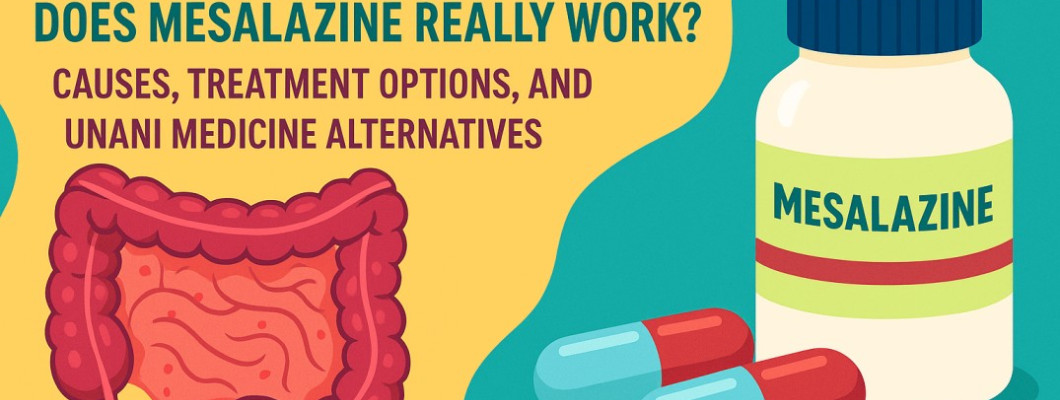
Ulcerative Colitis: Does Mesalazine Really Work? Causes, Treatment Options, and Unani Medicine Alternatives
Ulcerative colitis (UC) is a chronic inflammatory bowel disease (IBD) that affects the large intestine and rectum. It leads to repeated episodes of abdominal pain, diarrhea (often with blood), and fatigue. Managing UC can be challenging, but with the right treatment, patients can live healthy and fulfilling lives.
In this blog, we will explore:
How Mesalazine (modern medicine) works for UC
What Unani medicine offers as natural alternatives
The common causes and risk factors of ulcerative colitis
How patients can combine both systems of medicine for better outcomes
Does Mesalazine Really Work for Ulcerative Colitis?
Mesalazine (also known as mesalamine or 5-aminosalicylic acid) is one of the most commonly prescribed medications for ulcerative colitis. It is usually the first-line therapy for patients newly diagnosed with mild to moderate UC.
Effectiveness
Clinical studies show 40–70% of patients achieve remission with mesalazine.
Works best in mild to moderate UC.
For severe cases, additional treatments such as steroids or biologics may be required.
How It Works
Acts directly on the lining of the colon.
Reduces inflammation by blocking inflammatory chemicals like prostaglandins and leukotrienes.
Types & Usage
Oral tablets/capsules → used for widespread inflammation throughout the colon.
Suppositories or enemas → most effective when the rectum is involved (e.g., proctitis).
Often, a combination of oral and rectal therapy gives better results.
Possible Side Effects
Usually mild: nausea, headache, stomach discomfort.
Rare but serious: kidney or liver complications → regular medical monitoring is essential.
👉 Conclusion: Mesalazine is not a permanent cure for UC, but it is one of the most effective treatments for controlling symptoms, preventing flare-ups, and helping patients achieve long-term remission.
References:
American Gastroenterological Association Guidelines: https://gastro.org/clinical-guidance/
NIH – Mesalamine Overview: https://www.ncbi.nlm.nih.gov/books/NBK557812/
Causes and Risk Factors of Ulcerative Colitis
Ulcerative colitis does not have a single cause. Instead, it develops from a combination of genetic, immune, lifestyle, environmental, and gut microbiome factors.
1. Genetics (Family History)
Having a close relative (parent, sibling, child) with UC or Crohn’s disease increases the risk.
Certain genetic variations (such as NOD2, HLA, and IL23R) are strongly linked to IBD.
Genetics alone do not cause UC, but they make a person more susceptible when combined with other triggers.
2. Immune System Dysfunction
UC is considered an autoimmune condition.
The immune system mistakenly attacks the colon lining instead of harmful microbes.
This results in chronic inflammation, ulcer formation, and tissue damage.
3. Diet & Lifestyle
Unhealthy diet: Consuming processed foods, refined sugar, red meat, and low-fiber meals may exacerbate UC.
Stress: Does not directly cause UC but can trigger flare-ups.
Smoking: Interestingly, quitting smoking has been associated with UC flare-ups, even though smoking itself is harmful overall.
4. Gut Microbiome Imbalance (Dysbiosis)
A healthy gut has protective bacteria (Lactobacillus, Bifidobacterium).
In UC, these bacteria are reduced, while harmful microbes increase, fueling inflammation.
Treatments such as probiotics, prebiotics, or fecal microbiota transplantation (FMT) show promise in restoring balance.
5. Environmental Triggers
Gut infections may initiate UC in genetically predisposed people.
Frequent antibiotic use can disturb gut balance.
NSAIDs (like ibuprofen, aspirin, diclofenac) may irritate the intestine.
UC is more common in urban areas and Western countries, highlighting the role of diet and environment.
👉 Summary: UC develops when genetic predisposition interacts with immune dysfunction, gut imbalance, and environmental triggers. While the exact cause is unknown, managing diet, stress, and lifestyle can reduce flare-ups.
References:
Genetics of IBD – Comprehensive Review: https://pmc.ncbi.nlm.nih.gov/articles/PMC10787003/
Microbiome & UC Review: https://www.irjournal.org/journal/view.php?doi=10.5217%2Fir.2023.00080
Harvard Health – Probiotics & IBD: https://www.health.harvard.edu/blog/can-probiotics-help-calm-inflammatory-bowel-disease-202411133081
Unani Medicine Alternatives for Ulcerative Colitis
1. Unani Perspective
In Unani medicine, ulcerative colitis is described under Iltehab-e-Am’a (inflammation of the intestines), which occurs due to an imbalance of humors (Akhlat):
Excess Safra (yellow bile) → causes heat, burning sensation, and bloody diarrhea.
Excess Sauda (black bile) → leads to chronicity, ulceration, and weakness of the gut lining.
👉 Treatment principles focus on:
Munzij-Mushil Therapy → softening and expelling morbid humors.
Daf-e-Sozish → cooling and anti-inflammatory remedies.
Muqawwi-e-Am’a → strengthening and healing intestinal mucosa.
Habis-e-Dam → styptic drugs to control bleeding.
2. Diet & Lifestyle (Ilaj bil Ghiza)
Avoid oily, spicy, and heavy foods that aggravate gut heat.
Prefer light and cooling meals like barley water, rice, and pomegranate juice.
Include astringent fruits (quince, apple) to reduce diarrhea.
Manage stress through rest, meditation, and deep breathing, as emotional imbalance worsens UC flare-ups.
3. Herbal Remedies (Ilaj bid Dawa)
Ispaghul (Psyllium husk) → soothes the gut and controls diarrhea.
Babuna (Chamomile) → relieves inflammation and calms spasms.
Gul-e-Tesu (Butea monosperma) → reduces bleeding and irritation.
Mocharas (Bombax ceiba gum) → supports the healing of the intestinal lining.
Safoof-e-Muql & Habb-e-Mudir → classical Unani formulations for gut healing.
4. Mastagi Rumi (Pistacia lentiscus resin) and Gut Health
Forms a protective coating on the intestinal lining.
Enhances natural mucosal secretion, preventing ulcer formation.
Acts as an anti-inflammatory and astringent, reducing bleeding, irritation, and spasms.
Administration: Taken as powder, tablets, or with honey, ispaghol, or rice water—best in remission or early flare-ups.
Modern Insight: Research supports Mastagi’s role in reducing intestinal inflammation, improving microbiome health, and strengthening the gut barrier.
5. Munzij-Mushil Therapy in UC
A hallmark Unani approach involving two steps:
Munzij (Concoctives) → soften and prepare accumulated morbid humors (Safra, Sauda).
Mushil (Purgatives) → expel them safely without harming the intestines.
👉 In UC, this therapy:
Reduces chronic buildup of harmful humors.
Prevents recurrence of ulcers and flare-ups.
This is followed by tonics (Mastagi, Mocharas, Gul-e-Tesu) to restore gut strength.
⚠️ Important: Must be carried out under the supervision of a qualified Hakim, as unsupervised purgation may worsen diarrhea and weakness.
6. Regimental Therapies (Ilaj bil Tadbeer)
Hijama (Cupping) → removes excess heat and toxins.
Huqna (Herbal Enema) → cools and soothes the inflamed colon lining.
Ishal (Mild Purgation) → gently cleanses accumulated morbid matter.
References:
CCRUM – Central Council for Research in Unani Medicine: https://ccrum.res.in/
Journal of Herbal Medicine: https://www.sciencedirect.com/journal/journal-of-herbal-medicine
Can Mesalazine and Unani Medicine Work Together?
Yes. Many patients today are turning to integrative care, combining modern medicine with traditional healing systems like Unani medicine.
1. Role of Each System
Mesalazine (Modern Medicine):
Scientifically proven to reduce colon inflammation.
Helps patients achieve remission and prevents flare-ups.
Standardized dosing with predictable outcomes.
Unani Medicine (Traditional Healing):
Strengthens intestinal mucosa with remedies like Mastagi Rumi and Mocharas.
Uses Munzij-Mushil therapy to correct humoral imbalance and prevent recurrence.
Emphasizes diet, lifestyle, and whole-body wellness for long-term health.
2. Benefits of an Integrated Approach
Better control of flare-ups and symptoms.
Reduced dependence on high-risk medications like steroids or biologics.
Improved quality of life through holistic care (herbs, diet, stress management).
⚠️ Important Note:
Integration should always be done under medical supervision.
A gastroenterologist ensures safe use of Mesalazine and monitors for side effects.
A qualified Hakim personalizes Unani treatment according to individual Mizaj (temperament).
👉 Bottom Line: Combining Mesalazine with Unani therapy may provide the best of both worlds—modern scientific reliability plus traditional holistic healing.
Conclusion
Mesalazine remains the gold standard treatment for managing mild to moderate ulcerative colitis, effectively reducing inflammation and preventing flare-ups.
Unani medicine complements this by offering remedies such as Mastagi Rumi, Ispaghul, Mocharas, Gul-e-Tesu, and Munzij-Mushil therapy, which focus on healing the mucosal lining, balancing humors, and preventing recurrence.
When practiced under professional supervision, integrated care can give patients the best of both worlds—scientific reliability of modern medicine and the holistic healing of Unani wisdom.
👉 Final Thought: Ulcerative colitis is a long-term condition, but with the right balance of modern treatment and traditional Unani care, patients can achieve remission, reduce relapses, and live a healthier, more comfortable life.
🌐 Connect with Us
Stay updated with health insights, remedies, and wellness tips from The Hekim.
Facebook: facebook.com/thehekimofficial
Twitter (X): x.com/TheHekimOnline
Instagram: instagram.com/TheHekimOnline
LinkedIn: linkedin.com/in/thehekim
अल्सरेटिव कोलाइटिस: क्या मेसलाज़ीन सचमुच असरदार है? कारण, इलाज और यूनानी विकल्प
अल्सरेटिव कोलाइटिस (UC) एक लंबे समय तक रहने वाली आंतों की सूजन (Inflammatory Bowel Disease – IBD) है, जो बड़ी आंत और मलाशय (Rectum) को प्रभावित करती है। इसमें बार-बार पेट दर्द, दस्त (अक्सर खून के साथ) और थकान जैसे लक्षण दिखाई देते हैं।
इस बीमारी को संभालना चुनौतीपूर्ण हो सकता है, लेकिन सही इलाज और जीवनशैली अपनाकर मरीज एक स्वस्थ और संतुलित जीवन जी सकते हैं।
इस ब्लॉग में आप जानेंगे:
मेसलाज़ीन (आधुनिक दवा) UC में कैसे काम करती है
यूनानी चिकित्सा इसके लिए क्या प्राकृतिक विकल्प प्रदान करती है
UC के सामान्य कारण और जोखिम कारक
कैसे मरीज आधुनिक और यूनानी चिकित्सा को मिलाकर बेहतर नतीजे पा सकते हैं
क्या मेसलाज़ीन अल्सरेटिव कोलाइटिस में सचमुच असरदार है?
मेसलाज़ीन (जिसे मेसालामाइन या 5-अमिनो सैलिसिलिक एसिड भी कहा जाता है) अल्सरेटिव कोलाइटिस के लिए सबसे ज़्यादा दी जाने वाली दवाओं में से एक है। इसे आमतौर पर हल्के से मध्यम UC वाले नए मरीजों के लिए पहली दवा (first-line therapy) के रूप में दिया जाता है।
1. प्रभावशीलता (Effectiveness)
शोध बताते हैं कि 40–70% मरीजों को मेसलाज़ीन से आराम और लक्षणों में कमी मिलती है।
यह दवा हल्के और मध्यम UC में सबसे अच्छा काम करती है।
गंभीर UC के मामलों में, इसके साथ स्टेरॉयड या बायोलॉजिक दवाओं की ज़रूरत पड़ सकती है।
2. यह कैसे काम करती है? (How It Works)
यह दवा सीधे बड़ी आंत की परत (Colon lining) पर असर करती है।
सूजन पैदा करने वाले रसायनों (जैसे Prostaglandins और Leukotrienes) को रोकती है।
इससे आंतों की सूजन और अल्सर कम होते हैं।
3. रूप और इस्तेमाल (Types & Usage)
गोलियां/कैप्सूल (Oral) → पूरी आंत में फैली सूजन के लिए।
सपोसिटरी या एनीमा (Rectal use) → जब केवल मलाशय (Rectum) प्रभावित हो (जैसे प्रोक्टाइटिस)।
कई बार दोनों का कॉम्बिनेशन बेहतर नतीजे देता है।
4. संभावित दुष्प्रभाव (Possible Side Effects)
आमतौर पर हल्के: मतली, सिर दर्द, पेट में हल्की तकलीफ।
दुर्लभ लेकिन गंभीर: किडनी या लिवर की समस्या → इसलिए नियमित जांच ज़रूरी है।
👉 निष्कर्ष: मेसलाज़ीन कोई स्थायी इलाज नहीं है, लेकिन यह UC के लक्षणों को नियंत्रित करने, flare-up रोकने और लंबे समय तक आराम दिलाने के लिए सबसे प्रभावी दवाओं में से एक है।
संदर्भ (References):
American Gastroenterological Association Guidelines: https://gastro.org/clinical-guidance/
NIH – Mesalamine Overview: https://www.ncbi.nlm.nih.gov/books/NBK557812/
अल्सरेटिव कोलाइटिस के कारण और जोखिम कारक
अल्सरेटिव कोलाइटिस किसी एक कारण से नहीं होता। यह कई कारकों के मेल से विकसित होता है—आनुवंशिक, प्रतिरक्षा प्रणाली की गड़बड़ी, जीवनशैली, पर्यावरणीय कारण और आंतों के माइक्रोबायोम में असंतुलन।
1. आनुवंशिकता (Genetics / Family History)
अगर परिवार (माता-पिता, भाई-बहन या बच्चे) में UC या क्रोहन डिज़ीज़ है तो इसका खतरा अधिक होता है।
NOD2, HLA और IL23R जैसे जीन UC और IBD से जुड़े पाए गए हैं।
केवल जीन बीमारी का कारण नहीं बनते, लेकिन यह संवेदनशीलता (susceptibility) बढ़ा देते हैं।
2. प्रतिरक्षा प्रणाली की गड़बड़ी (Immune Dysfunction)
UC को एक Autoimmune बीमारी माना जाता है।
इसमें प्रतिरक्षा तंत्र गलती से आंतों की परत पर हमला करता है।
परिणामस्वरूप लगातार सूजन, अल्सर और ऊतक को नुकसान होता है।
3. आहार और जीवनशैली (Diet & Lifestyle)
अनुचित आहार: प्रोसेस्ड फूड, चीनी, लाल मांस और कम फाइबर वाला भोजन UC को बिगाड़ सकता है।
तनाव: सीधे कारण नहीं है, लेकिन flare-up को बढ़ा सकता है।
धूम्रपान: दिलचस्प बात यह है कि धूम्रपान छोड़ने के बाद कई बार UC की शुरुआत या flare-up होता है (हालाँकि धूम्रपान अपने आप में हानिकारक है)।
4. आंतों के माइक्रोबायोम में असंतुलन (Gut Microbiome Dysbiosis)
एक स्वस्थ आंत में लैक्टोबैसिलस और बिफिडोबैक्टीरियम जैसे लाभकारी जीवाणु होते हैं।
UC में यह कम हो जाते हैं और हानिकारक जीवाणु बढ़ जाते हैं, जिससे सूजन बढ़ती है।
प्रोबायोटिक्स, प्रीबायोटिक्स और फीकल माइक्रोबायोटा ट्रांसप्लांट (FMT) संतुलन बहाल करने के विकल्प हैं।
5. पर्यावरणीय कारण (Environmental Triggers)
आंतों का संक्रमण संवेदनशील लोगों में UC की शुरुआत कर सकता है।
बार-बार एंटीबायोटिक का प्रयोग आंतों के संतुलन को बिगाड़ देता है।
NSAIDs दवाएँ (जैसे इबुप्रोफेन, एस्पिरिन, डाइक्लोफेनाक) आंतों को चिढ़ा सकती हैं।
पश्चिमी देशों और शहरी क्षेत्रों में UC अधिक पाया जाता है, जो आहार और पर्यावरण की भूमिका दिखाता है।
👉 सारांश: UC तब विकसित होता है जब आनुवंशिक प्रवृत्ति + प्रतिरक्षा तंत्र की गड़बड़ी + आंतों का असंतुलन + पर्यावरणीय कारण एक साथ प्रभाव डालते हैं। हालांकि सटीक कारण अज्ञात है, लेकिन आहार, तनाव और जीवनशैली का सही प्रबंधन flare-up को कम करने में मदद कर सकता है।
संदर्भ (References):
Genetics of IBD – Comprehensive Review: https://pmc.ncbi.nlm.nih.gov/articles/PMC10787003/
Microbiome & UC Review: https://www.irjournal.org/journal/view.php?doi=10.5217%2Fir.2023.00080
Harvard Health – Probiotics & IBD: https://www.health.harvard.edu/blog/can-probiotics-help-calm-inflammatory-bowel-disease-202411133081
अल्सरेटिव कोलाइटिस के यूनानी विकल्प
1. यूनानी दृष्टिकोण (Unani Perspective)
यूनानी चिकित्सा में अल्सरेटिव कोलाइटिस को इल्तेहाब-ए-अमआ (Iltehab-e-Am’a – आंतों की सूजन) कहा जाता है। इसका कारण है अख़लात (Humors) का असंतुलन:
अधिक सफ़रा (पीला पित्त) → जलन, गर्मी और खून के साथ दस्त।
अधिक सौदा (काला पित्त) → पुरानी सूजन, अल्सर और आंतों की कमजोरी।
👉 उपचार के सिद्धांत:
मुनज़िज़-मुशिल थेरेपी (Munzij-Mushil Therapy) → खराब मादों को नरम कर बाहर निकालना।
दफ़-ए-सोज़िश (Daf-e-Sozish) → ठंडे और सूजन-रोधी नुस्खे।
मुक़व्वी-ए-अमआ (Muqawwi-e-Am’a) → आंतों को मज़बूत और ठीक करना।
हाबिस-ए-दम (Habis-e-Dam) → खून रोकने वाली औषधियाँ।
2. आहार व जीवनशैली (Ilaj bil Ghiza)
तैलीय, मसालेदार और भारी भोजन से बचें।
जौ का पानी, चावल और अनार का रस जैसे हल्के व ठंडे भोजन लें।
अमरूद व सेब जैसे कसैले फल दस्त को कम करते हैं।
तनाव को कम करने के लिए आराम, ध्यान और गहरी साँस का अभ्यास करें।
3. यूनानी औषधियाँ (Ilaj bid Dawa)
इसपघुल (Psyllium husk) → आंतों को आराम देता है और दस्त रोकता है।
बाबूना (Chamomile) → सूजन कम करता है और ऐंठन को शांत करता है।
गुल-ए-टेसू (Butea monosperma) → खून बहना और जलन कम करता है।
मोचरस (Bombax ceiba gum) → आंतों की परत को मज़बूत करता है।
सफूफ़-ए-मुक़्ल व हब्ब-ए-मुदीर → पारंपरिक यूनानी नुस्खे, जो आंतों की मरम्मत में सहायक हैं।
4. मस्तगी रूमी (Mastagi Rumi – Pistacia lentiscus resin) और आंतों का स्वास्थ्य
आंतों की परत पर सुरक्षात्मक कोटिंग बनाता है।
प्राकृतिक म्यूकस स्राव बढ़ाता है, जिससे अल्सर बनने से रोकता है।
सूजन व खून बहना कम करता है, ऐंठन को शांत करता है।
सेवन का तरीका: पाउडर, गोली या शहद/इसपघुल/चावल के पानी के साथ लिया जाता है।
आधुनिक शोध: मस्तगी सूजन कम करने, माइक्रोबायोम सुधारने और आंत की दीवार मज़बूत करने में सहायक है।
5. मुनज़िज़-मुशिल थेरेपी (Munzij-Mushil Therapy)
यह यूनानी चिकित्सा की एक विशेष विधि है:
मुनज़िज़ (Concoctives) → हानिकारक मादों को नरम करते हैं।
मुशिल (Purgatives) → इन्हें सुरक्षित रूप से बाहर निकालते हैं।
👉 UC में इसके लाभ:
खराब मादों की पुरानी परत को साफ़ करता है।
अल्सर और flare-up को दोबारा होने से रोकता है।
इसके बाद टॉनिक (मस्तगी, मोचरस, गुल-ए-टेसू) दिए जाते हैं ताकि आंतों की ताक़त लौटे।
⚠️ महत्वपूर्ण: यह इलाज हमेशा किसी योग्य हकीम की देखरेख में ही किया जाना चाहिए, वरना दस्त और कमजोरी बढ़ सकती है।
6. तदबीर (Regimental Therapies – Ilaj bil Tadbeer)
हिजामा (Cupping) → अतिरिक्त गर्मी और विषैले तत्व निकालता है।
हुक़्ना (Herbal Enema) → बड़ी आंत की जलन व सूजन कम करता है।
इशल (Mild Purgation) → जमा हानिकारक पदार्थों को धीरे-धीरे साफ़ करता है।
संदर्भ (References):
CCRUM – Central Council for Research in Unani Medicine: https://ccrum.res.in/
Journal of Herbal Medicine: https://www.sciencedirect.com/journal/journal-of-herbal-medicine
क्या मेसलाज़ीन और यूनानी चिकित्सा साथ में ली जा सकती है?
हाँ ✅। आजकल कई मरीज इंटीग्रेटिव केयर (Integrative Care) अपना रहे हैं, जिसमें आधुनिक दवाओं के साथ पारंपरिक यूनानी चिकित्सा का सहारा लिया जाता है।
1. दोनों प्रणालियों की भूमिका
🔹 मेसलाज़ीन (आधुनिक चिकित्सा):
वैज्ञानिक रूप से प्रमाणित, बड़ी आंत की सूजन कम करता है।
मरीजों को आराम दिलाता है और flare-up (दोबारा लक्षण आने) को रोकता है।
निर्धारित और मानक खुराक में परिणाम अधिक भरोसेमंद।
🔹 यूनानी चिकित्सा (पारंपरिक उपचार):
आंत की परत को मज़बूत बनाती है (जैसे मस्तगी रूमी और मोचरस)।
मुनज़िज़-मुशिल थेरेपी से मिज़ाज (Humors) का संतुलन ठीक करती है और दोबारा बीमारी को रोकती है।
आहार, जीवनशैली और पूरे शरीर की सेहत पर ज़ोर देती है।
2. इंटीग्रेटिव अप्रोच के फायदे
लक्षणों और flare-up पर बेहतर नियंत्रण।
स्टेरॉयड या भारी दवाओं पर निर्भरता कम।
जीवनशैली, आहार और औषधि के साथ संपूर्ण स्वास्थ्य लाभ।
⚠️ महत्वपूर्ण:
यह संयोजन केवल विशेषज्ञ डॉक्टर और हकीम की देखरेख में होना चाहिए।
गैस्ट्रोएंटेरोलॉजिस्ट मेसलाज़ीन की सुरक्षित खुराक और दुष्प्रभाव की निगरानी करते हैं।
हकीम मरीज के मिज़ाज (Temperament) के अनुसार यूनानी इलाज को व्यक्तिगत बनाते हैं।
👉 निचोड़: मेसलाज़ीन और यूनानी चिकित्सा को साथ लेकर चलने से मरीज को दोनों का फायदा मिलता है—आधुनिक विज्ञान की विश्वसनीयताऔर यूनानी चिकित्सा की प्राकृतिक व समग्र देखभाल।
निष्कर्ष
मेसलाज़ीन हल्के से मध्यम अल्सरेटिव कोलाइटिस के लिए अभी भी सबसे भरोसेमंद और मानक इलाज है। यह आंतों की सूजन कम करता है और flare-up (लक्षणों के दोबारा उभरने) को रोकने में मदद करता है।
यूनानी चिकित्सा इसे पूरा करती है, जिसमें मस्तगी रूमी, इसपघुल, मोचरस, गुल-ए-टेसू और मुनज़िज़-मुशिल जैसी औषधियाँ शामिल हैं। ये आंत की परत को ठीक करती हैं, मिज़ाज (Humors) को संतुलित करती हैं और बीमारी के दोबारा होने से बचाती हैं।
अगर दोनों उपचार विशेषज्ञ डॉक्टर और हकीम की देखरेख में मिलाकर किए जाएँ तो मरीजों को आधुनिक चिकित्सा की वैज्ञानिक विश्वसनीयता और यूनानी चिकित्सा की प्राकृतिक व संपूर्ण देखभाल—दोनों का लाभ मिलता है।
👉 अंतिम विचार: अल्सरेटिव कोलाइटिस एक लंबी बीमारी है, लेकिन अगर आधुनिक दवा और यूनानी हिकमत का सही संतुलन अपनाया जाए तो मरीज आराम पा सकते हैं, flare-up कम कर सकते हैं और एक स्वस्थ व सहज जीवन जी सकते हैं।
🌐 Connect with Us
Stay updated with health insights, remedies, and wellness tips from The Hekim.
Facebook: facebook.com/thehekimofficial
Twitter (X): x.com/TheHekimOnline
Instagram: instagram.com/TheHekimOnline
LinkedIn: linkedin.com/in/thehekim



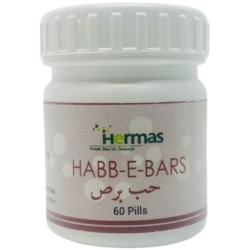
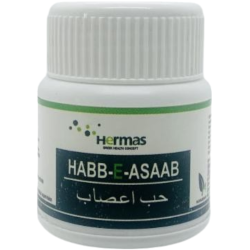
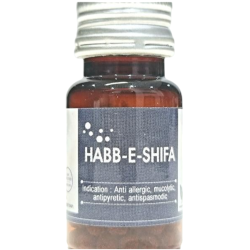
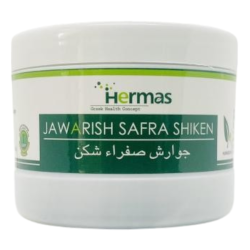

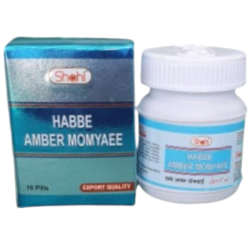
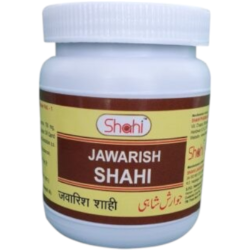

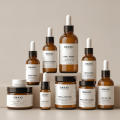
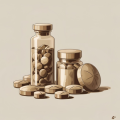

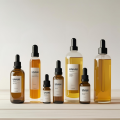
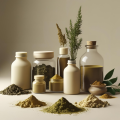
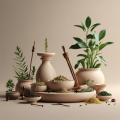

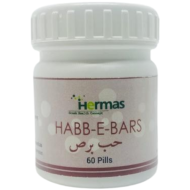
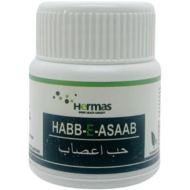
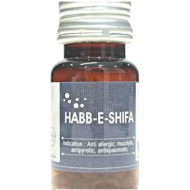

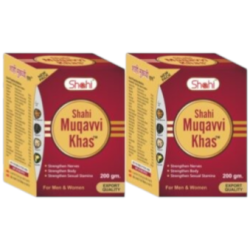

Leave a Comment